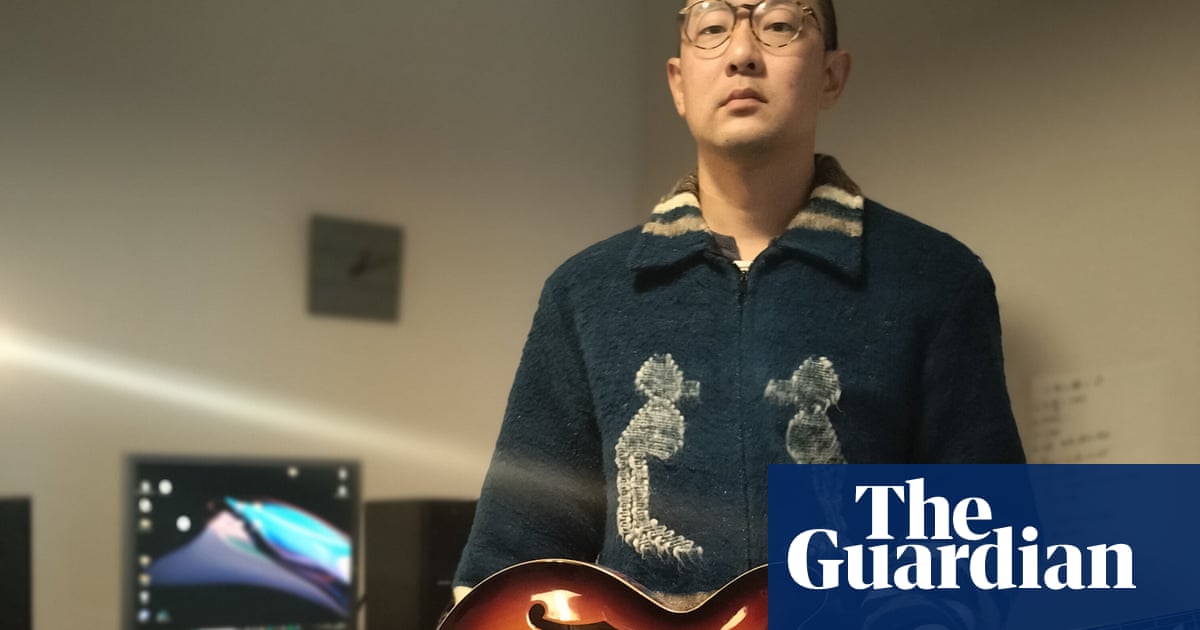
When you’re interviewing a musician, it’s considered a good idea to have digested a decent amount of their art. Having said that, Michiru Aoyama, a Ryuichi Sakamoto fan and resident of Kyoto, has released a new album every single day since at least 31 December 2021 – so despite a fortnight of almost non-stop listening, I’ve barely scratched the surface.
I say at least because Aoyama has so many releases that if you scroll down on his Spotify page, the system basically groans and gives up. Today’s album is called Xyo, yesterday’s was Card, the day before that Moriko; they stretch on and on in their hundreds.
What is remarkable is just how good they all are: super-deep ambient pieces that drift and flow and shimmer and breathe and never outstay their welcome. Eight tracks of equal length with a total run time of 20 minutes and 27 seconds. These are micro-masterpieces of focus and restraint, and once you’ve worked or slept or driven or daydreamed to them, you might find it hard to look elsewhere.
Aoyama, 38, remembers exactly when he made the decision to release a new album every day. “It was in October 2019,” he writes in one of the emails that, like his new music, arrives overnight from Japan. “I was living in the countryside outside Fukuchiyama, Kyoto and I was soaking in a public bath.” For this project to work, everything Aoyama recorded would have to be released.
“Writing a song is like keeping a diary,” he says. “I disclose all the good memories and bad memories, and writing songs every day has become a fun routine.” As for quality control, he says: “It is a trial and error process, but I release it all, the good sound quality and the bad sound quality without any concealment.”
Aoyama has developed a strictly defined style – he calls it “a compositional mould” – where his PRS McCarty guitar or Prophet-10 analog synth is run through a bank of FX to create a (seemingly endless) series of warm, amniotic sound-baths. Frankly, if you like one of them, you’ll like all of them.
“I think my style can be similar,” he concedes, “but this is the sound I want to do. In ambient music, many people make long songs, but I listen to them as if they were short stories. So songs one, three, five and seven have the same taste, and songs two, four, six and eight have the same taste.”
Of course, releasing this many albums is only possible digitally, and his strategy was deliberately adopted to exploit the streaming algorithm. A year ago Aoyama, who had an indie rock band called Nicole while in high school, had just under 100,000 monthly listeners on Spotify. As his daily releases pile up, his count has risen to just over 200,000 (increasing by about 400 a day). Approximately 90% of his income is derived from the many playlists (Weightless, Ambient Dreamscapes, Spa Treatment, Attention Booster and others) where his music appears, alongside fellow (not quite so) prolific deep ambient Japanese solo artists such as Chihei Hatakeyama and Akira Kosemura, while Bandcamp provides much of the rest. His entirely self-owned music now earns Aoyama about £2,400 a month. In April this year he “retired”, as he describes it, from tech investment firm SoftBank, where he used to train new employees and organise events.
If you, like me, are now thinking “perhaps I could record and release an album every day”, then you’ll need to have a very dedicated routine. Aoyama’s daily schedule starts at 5am when he wakes and checks out “a whole digest” of European football for 30 minutes. Between 6am and midday he is composing. After that it’s a two-hour walk, eat a meal, and then start composing again until 7pm when he uploads the day’s sound files. That in itself is a two-hour job.
And then? “After that, I study a little,” he says, as if he hadn’t wrung enough from the day already. “I go to bed around 11pm.”
It’s an odd experience emailing an artist knowing full well they are in the middle of recording a new album – but because this artist is always recording a new album, I persist. What if you just stopped, I ask him, then what? “For me, writing songs is like brushing my teeth,” he says. “So I would not feel comfortable stopping.”
But if you did? “I would take pictures, draw pictures, or write novels,” he says. “But what I would most like to do is to make movies.” And with that, he sinks back into the ether, another 20 minutes and 27 seconds of perfectly shaped music ready to float out over an increasingly engaged world.












